Skills the main barrier to Northern growth, says Swinney
Paul Swinney, principal economist at think-tank Centre for Cities, has argued that whilst it was “great to see the North pulling together” at the transport summit on Wednesday, Northern leaders are “shouting about the wrong thing” . Swinney points to London’s expensive housing market and high wages as to why the capital’s commuter profile is so different to cities in the North.
Swinney writes:
People commute long distances into London because wages are high, which pulls them in, but housing is expensive, which pushes them out. This is not the case around Northern cities.

Commuting is a cost. Why would a volume of people choose to commute from the east of Leeds to Manchester when they could live in Tameside? Those that do commute currently don’t choose to live in another city but in the countryside, because it offers something different.
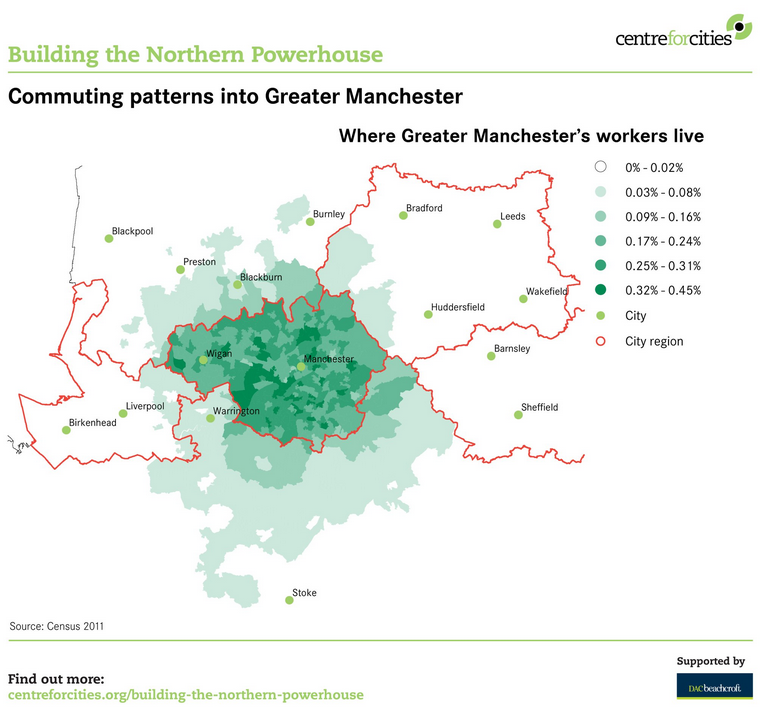
Crossrail 2 isn’t the same as Crossrail for the North. The former is a new commuter line within a city. The latter is an intercity link. So Manchester should instead be shouting for better commuter lines from its rural hinterland, a Crossrail for Manchester.
Despite all the noise, transport isn’t even the biggest barrier to economic growth. Skills are. Skills in Northern cities look bad not just in a UK context, but in a European one too.
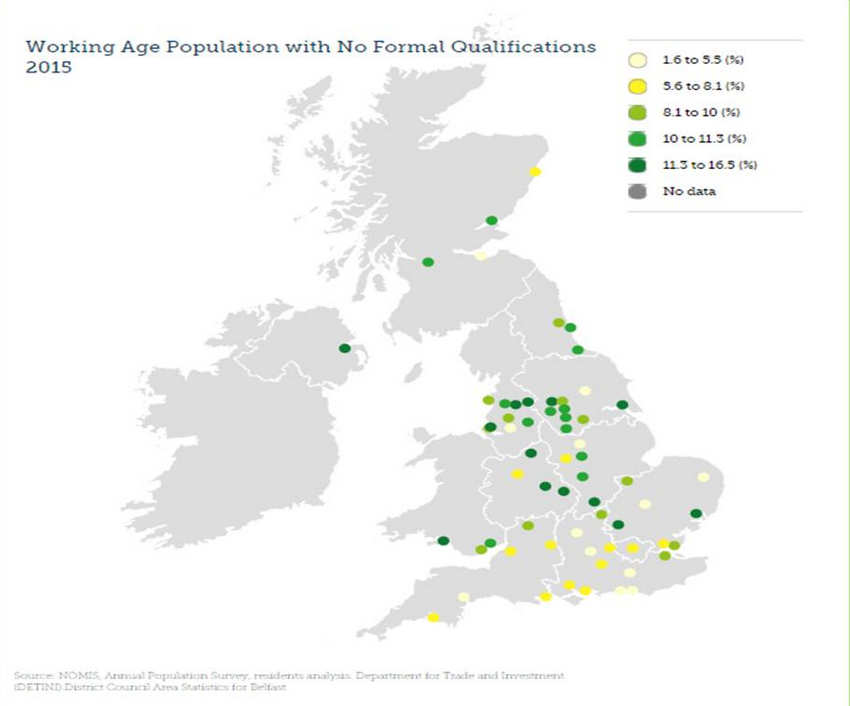
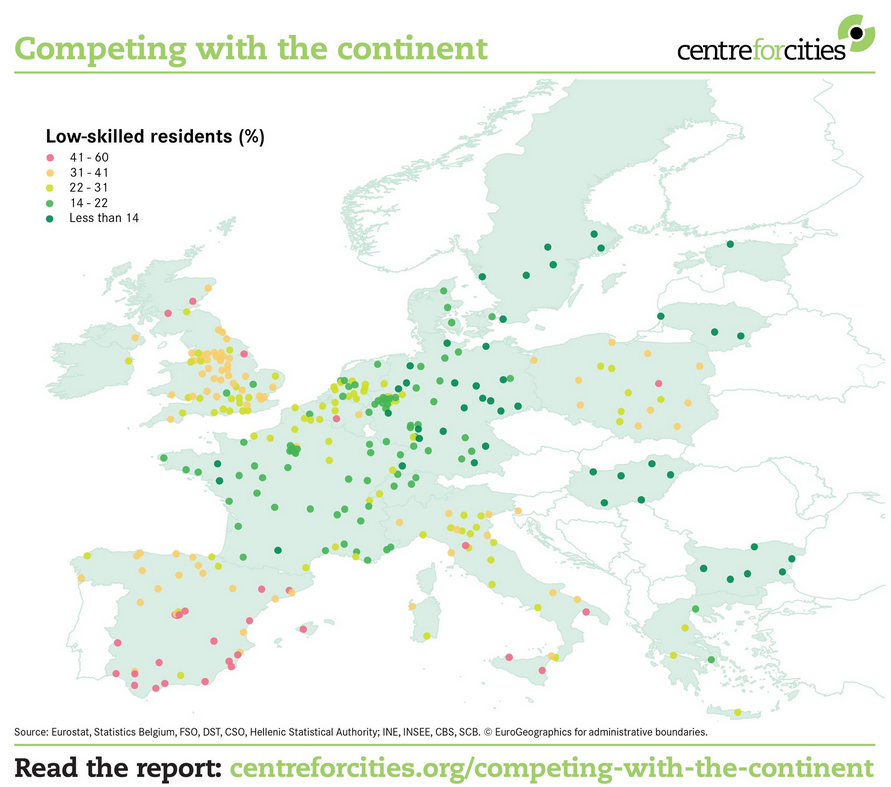
This is a big barrier to attracting high-skilled business investment, leading to this outcome. But a grand transport project gets the airtime.
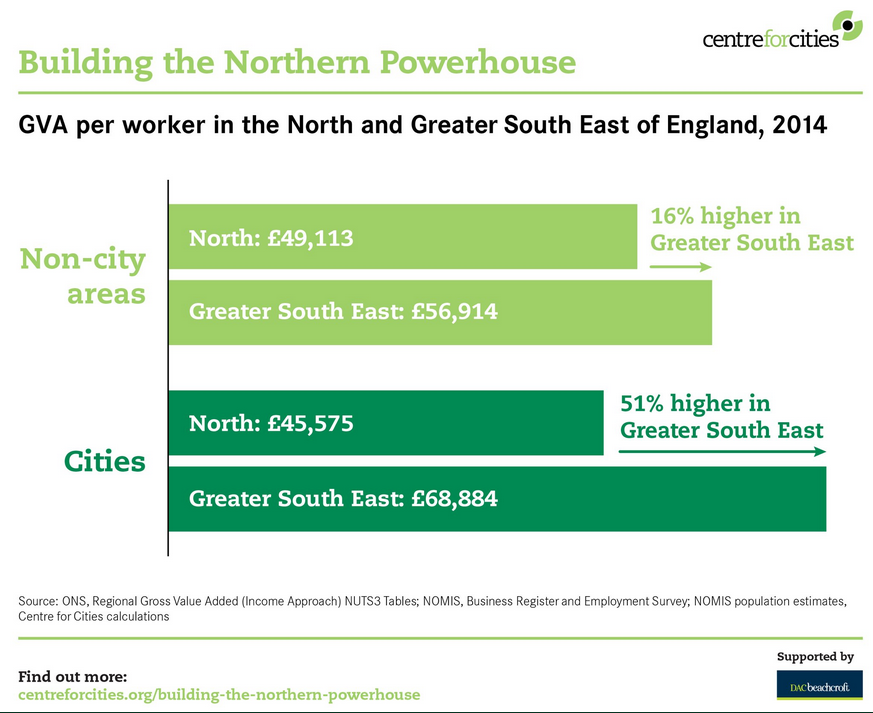
People are angry. Much anger seems to be based on fairness between London and the rest, based on a particular cut of transport spending stats.
Here’s what’s not fair. London has had a Mayor, devolution and Transport for London for almost two decades. Our strongest city has the greatest freedoms.
So this is what Northern cities need to do; get a Mayor, for those without one, address skills, get similar powers to Transport for London to improve transport from within.
- Swinney’s points first appeared on Twitter


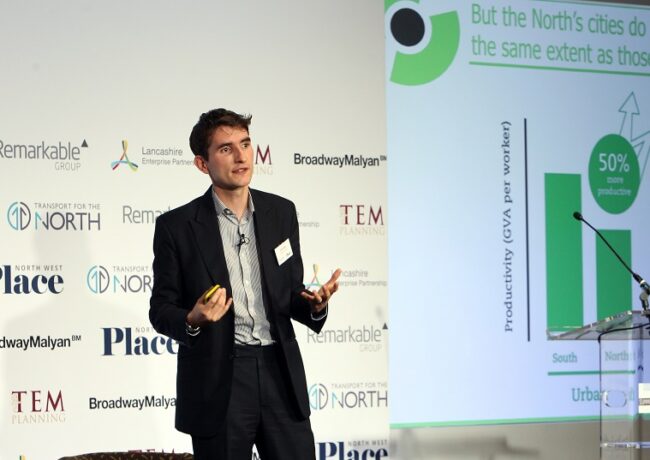

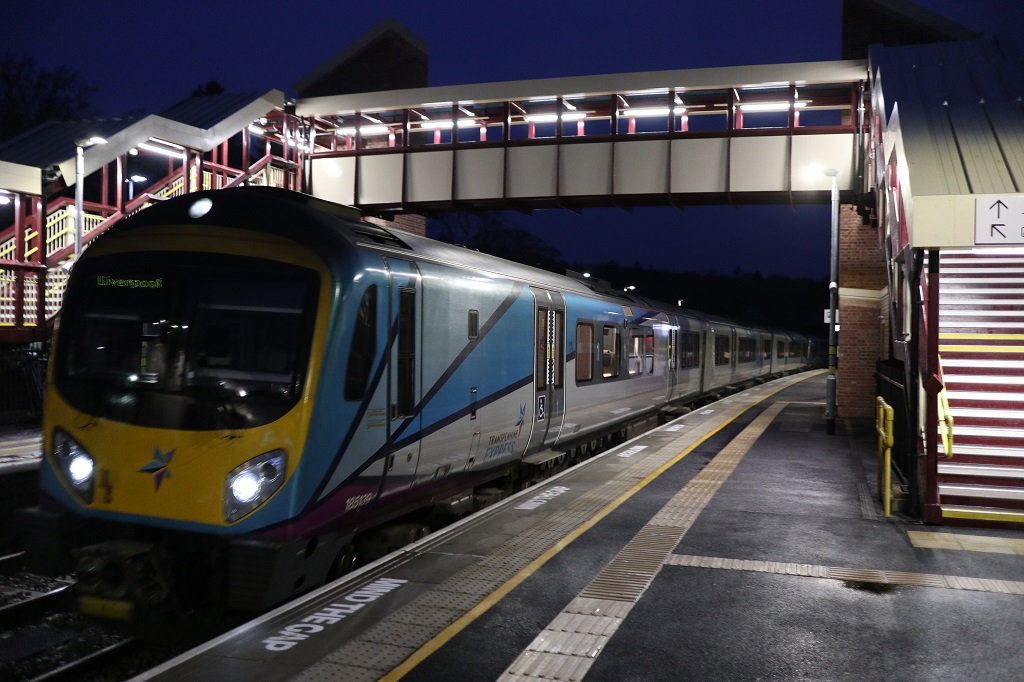
Skill people up in the North, they move to the South. Why? More money down there. How to keep them in the North? More money up here.
By Du Be Ous
The above is spot on, transport is only an enabler and it unlocks demand and if there isn’t the right conditions (with skills as the major one) then spending on transport won’t create economic growth on its own. However there is a lot of unlocked demand in the North that transport investment can unlock now.
Highlighting the need to spend on local transport (within cities/urban ares) is also as important if not more than investing on inter-city transport in the North.
But transport is more than just commuting, its also about moving goods and services, developing business links, accessing education, social activity etc and its quite clear than in the North the existing networks are way below the standard of our equals in Europe and elsewhere.
Its also dangerous with continuous comparisons with London and the North, the comparison with the Netherlands and the Rhine-Rhur should be more more realistic comparison and examples to aim for.
By A Transport Planner
The obvious logical solution from Paul’s points are that Greater Manchester needs proper cross-city commuting links – in other words a short tunnelled metro under the city that would link all the currently poor quality commuting lines that end at the edge of the city. TfGM say a tunnelled metro may be needed ‘in the 2030s’. Yet all our European rivals already have these good links. For goodness sake, let’s make the case now!
By Peter Black